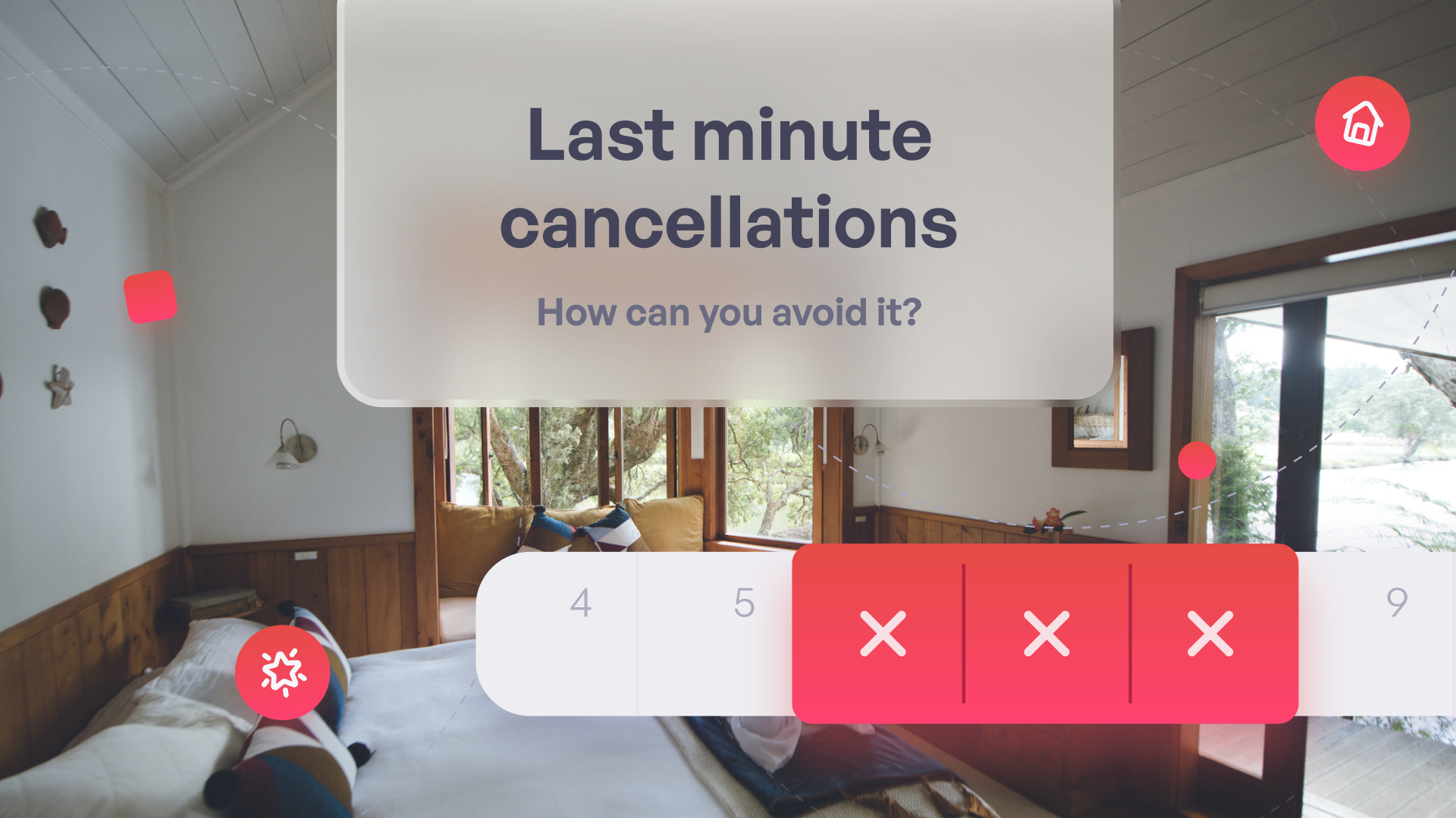
Cancel at the last moment – how to avoid it?
As an accommodation provider, we are sure you have already encountered the phenomenon of guests canceling a long-fixed reservation at the last minute. Or even not canceling at all; they simply do not come. This is a really bad situation as at that point you probably don't have much chance to make up for the loss. Some preventive measures help you to avoid these situations and it is also good if you have a plan B in case, you don't manage to.
Why do people cancel their reservations at the last moment?
Although it is annoying, guests often have compelling reasons for canceling their stay. For example, illness, accident, family problems, unexpected expenses may come and they have no choice.
No one wants to:
• go on a feverish vacation,
• sit on the beach and in a hotel with their legs in plaster,
• go on a family vacation in the middle of a divorce,
• spend time in a strange place with no money.
Just a few examples.
Since the booking is usually made in advance, we can never be sure that the term will be OK, many things can come up.
However, everyone knows that there are so-called ’impulse bookers’. They book recklessly exactly because they know that they can cancel later if they change their mind. They do not think about whether they can really afford the trip, whether they want to go to that place at all or whether they can make themselves available for the appointment. Unfortunately, they don't even think about the fact that they can cause serious material damage to the host.
Guests don’t like to pay in advance
The truth is that impulse bookers have this habit because they know that they don’t have to pay for canceled reservations. If a part of the amount would have to be paid in advance, usually they will think much more about whether they really want the trip.
Most guests are reluctant to pay in advance, especially since the availability of accommodation has become uncertain at first due to covid and now because of utility prices. So there is nothing to encourage them to book responsibly.
Paying the full costs in advance is more of a deterrent than an insurance factor.
Think about it as a guest: you would like to travel in 6 months if everything goes well. You book your accommodation now, but would you like to pay the full amount in advance? There is no guarantee that you will get your money back if the trip fails. If it fails because of you, you can be quite sure you won't get it back. No wonder most people don’t want to accept this.
Limited free cancellation
A much more workable solution is that the guests have to pay only one part of the money in advance or the full amount should be paid 2-4 weeks before the booked date.
This way you gave time to the guests and you also don't expose yourself to last-minute cancellations without even earning any money. You should determine the amount of the advance so that it is not too high for the guests but compensates you if they don’t come.
A few weeks before the term, the willingness to pay is higher, since many factors can be foreseen at this time and the guests are quite sure that they will come. You can decide whether you request the full amount or only a part in advance, as well as how long it is possible to cancel for free. When you determine this period, take care that you still would have time to fill the term in case of cancellation. As the booked date approaches you can request a higher amount as compensation.
These conditions are used by many accommodation providers. The conditions are acceptable to most guests and protect you against last-minute cancellations.
Blacklist of ’impulse bookers’
You can save yourself a lot of annoyance if you list the cancellations for yourself. This way you can recognize people who do it regularly and you can simply not receive them. Of course, a cancellation does not mean that the person makes a sport out of it, especially if he gives notice in time. But if someone repeatedly cancels or doesn't come without telling you in advance, you better know his or her name.
Inquire before the appointment!
You can prevent many last-minute cancellations if you contact the guest 1 week before the booked period to remind them of the reservation and ask if everything is okay with it. If they say they won't come, you still have 1 week to fill their place.
Advertise the vacancy!
If capacity suddenly becomes available and you don't have much time left to find another guest, the most effective way is to advertise the free period in Facebook groups. Especially within the country, many people can travel almost immediately. If you offer a small last-minute discount as well, you have a good chance that you will quickly find a guest to replace those who canceled.
Prevention is the best medicine
The best solution for last-minute cancellations is prevention. Communication with the guest and the limitation of the free cancellation motivates them to think about the booking seriously. Of course, unexpected situations can still arise but they cause fewer problems if you get at least part of the money. And if you advertise the vacancy on the appropriate platforms you can even fill the places within hours!
¡Cree el sitio web de su casa de huéspedes en minutos!
- Registro superfácil
- No necesitas conocimientos de programación
- Asistencia en tiempo real
